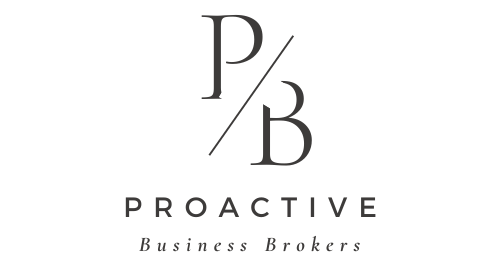For entrepreneurs who have dedicated years to building their businesses, the time may come to contemplate the next chapter. Selling your business, if done strategically, can yield significant returns, securing both your financial future and the legacy of your hard work. However, maximising the sale price of your business doesn’t happen by chance. Proactive preparation is essential to ensure you command the highest possible valuation.
Understanding Valuation: How Buyers Assess Your Business
Before you start preparing, it’s crucial to understand how potential buyers determine the value of your business. Key factors include:
- Financial Health: Historical profitability, cash flow, growth trends, and debt levels are paramount. Buyers meticulously examine the financial health of your company to gauge future potential.
- Market Dynamics: The overall health of your industry, competition, and potential growth opportunities significantly impact valuation. Buyers want to invest in businesses operating in promising markets.
- Recurring Revenue Model: Businesses with a predictable income stream, such as those reliant on subscriptions or long-term contracts, are highly desirable due to their stability.
- Customer Base: A diversified, loyal customer base with low churn demonstrates the sustainability of your business model and reduces reliance on any single client.
- Intangible Assets: Brand reputation, patents, proprietary technology, and trade secrets all increase the value of your business as they are often difficult for competitors to replicate.
Key Strategies to Enhance Business Value
Now that you understand valuation drivers, here’s how to optimise your business for maximum appeal:
- Boost Profitability: Focus on revenue growth, streamlining operations, and cost reduction. Every pound saved or generated translates into heightened value. Even modest improvements can significantly impact your bottom line.
- Strengthen Your Team: A strong management team independent of the owner increases buyer confidence. Invest in your team’s development, promote from within, or consider strategic hires to fill key roles.
- Systematize Operations: Document your processes, create procedures, and ensure clean record-keeping. Well-organised operations demonstrate efficiency and make for an easier transition under new ownership.
- Diversify Customers and Revenue Streams: Minimise risk for buyers by reducing reliance on single clients or products. Explore new markets, develop new offerings, and expand customer acquisition channels.
- Protect Intellectual Property: If applicable, secure patents, trademarks, and copyrights. This safeguards your competitive advantage and demonstrates the unique value proposition of your business.
- Shore Up Legal and Financial Paperwork: Meticulous organisation is key. Prepare clear financial statements, tax returns, and address outstanding legal matters. Streamlining due diligence builds trust and reduces friction in the sale process.
The Importance of Timing
Selling at the right time can be just as important as preparing your business. Consider these factors:
- Market Conditions: Aim to sell during favourable economic conditions and when there is strong demand in your industry.
- Business Performance: If possible, time your sale with a demonstrated period of growth and a strong financial track record.
- Personal Readiness: Ensure you are both emotionally and practically prepared to transition away from your business.
The Value of Professional Guidance
Selling a business is complex – consider working with these professionals:
- Business Broker: They specialise in connecting with buyers, valuing your business, marketing your company, and negotiating the best possible deal.
- Accountant: Structure the sale for tax efficiency to maximise your returns.
- Solicitor: Protect your interests with expertly drafted transaction agreements.
Preparing for a Successful Exit
By meticulously preparing your business for sale, you position yourself for a smooth transaction and maximise the fruits of your labour. Remember, proactive planning, a long-term perspective, and investment in your business’s value are essential components of a profitable and rewarding exit strategy.
